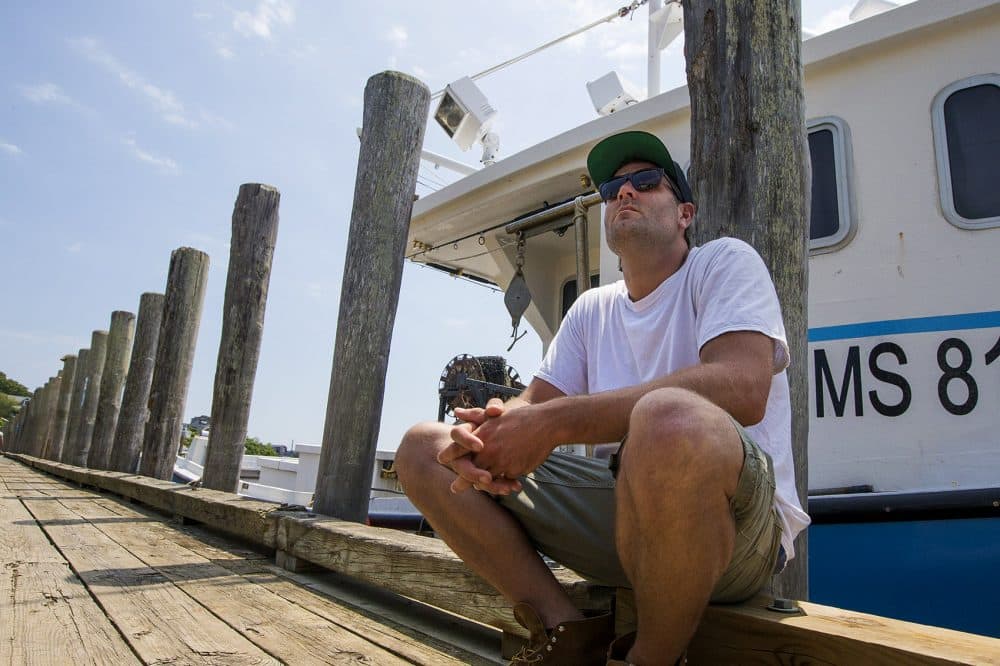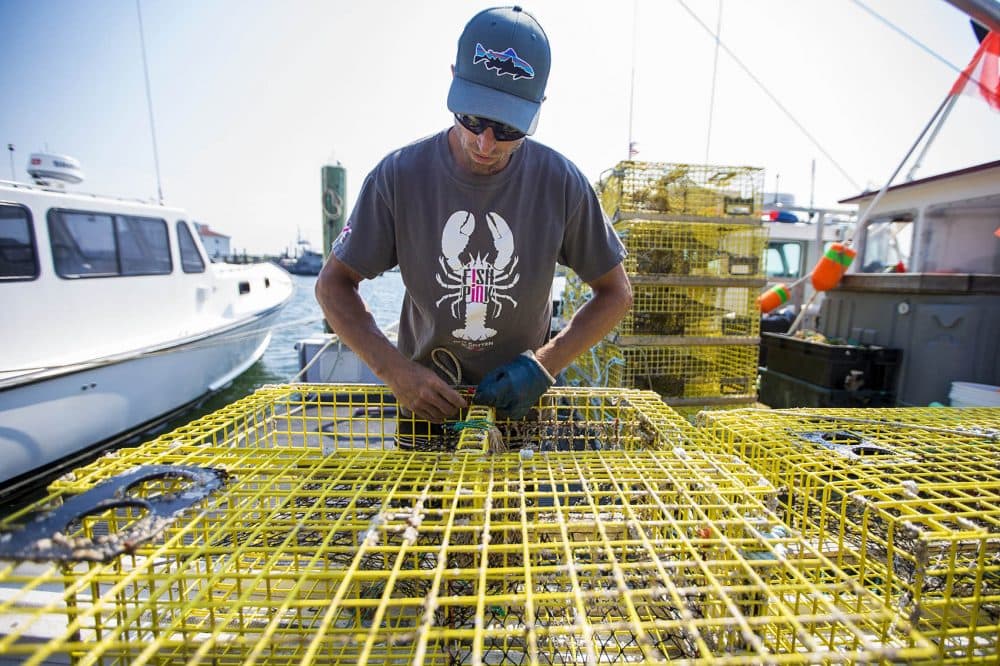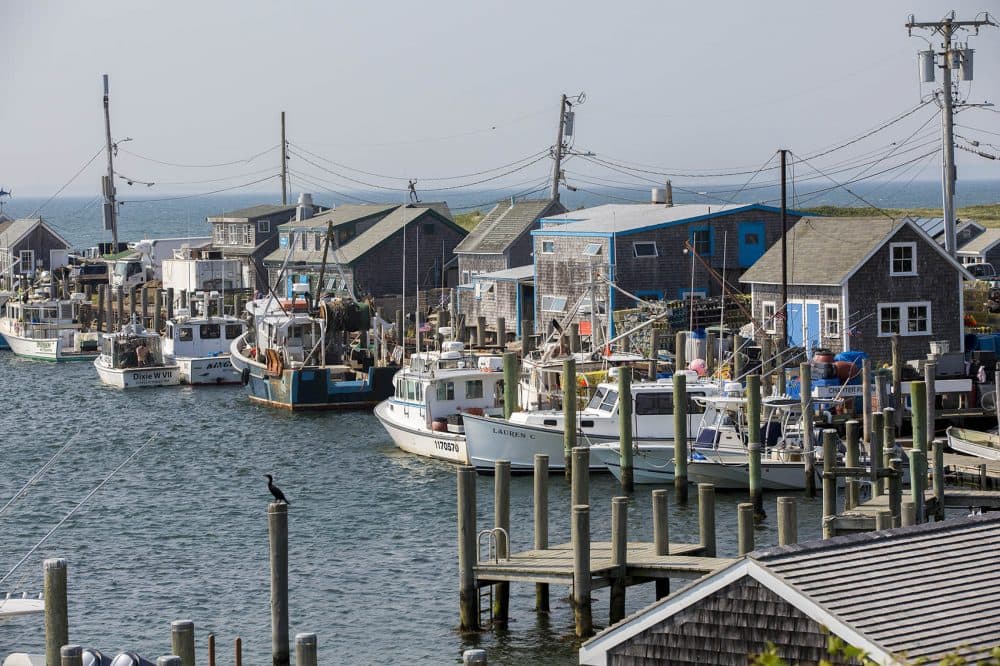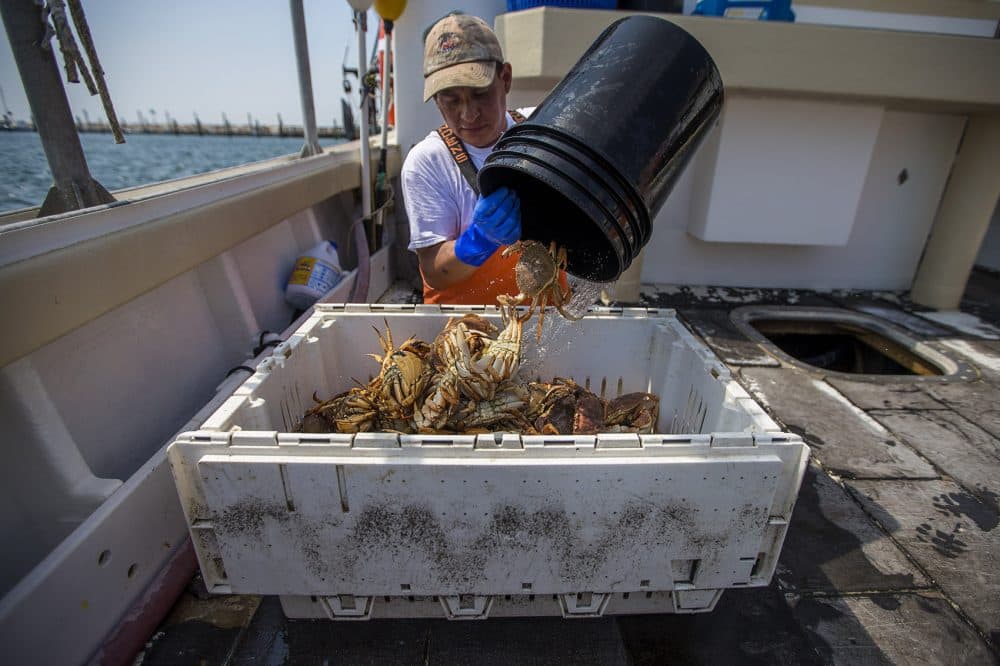Advertisement
Martha's Vineyard 'Permit Bank' Looks To Buoy Small Fishermen
Resume
Out on the docks of Menemsha on Martha's Vineyard, Wes Brighton rigged up lobster pots he planned to set the next day.
In an ideal world, he'd also be fishing for other species — like scallops and groundfish — but he can't afford the expensive government-issued permits that would grant him the fishing rights.
"They've turned a public resource into a commodity, and they haven't limited the people who can own that commodity to commercial fisherman," Brighton said. "And so a fisherman who wants to go catch scallop quota inside of a small community, like we have here on Martha's Vineyard, can't access that ... without coming up with a ton of money. "
The fishing boats and docks of Menemsha present a postcard view of Martha's Vineyard. But through Brighton's eyes, there's more to the picture.
"Every time you look somewhere you are losing dock space on our own town dock, which has always been allocated to commercial fishing," he said. "And just recently we lost a big chunk to a charter boat. It's up to us to keep this fight because if we lose our tradition, we lose our heritage, and that's something we just can't let [happen]."

At 36, Brighton is typical of the latest generation of small fishermen: struggling to stay afloat in an era of privately held fishing rights. He decided something had to be done.
"The question was: 'How do we get permits?' And because it's out of reach for the majority of young fishermen to acquire multimillion-dollar or multi-hundred-thousand-dollar [permits] … we needed to find a catalyst to make that work," Brighton said. "The only way to do that, that I could see, was through a nonprofit permit back."
In 2011, Brighton and two colleagues formed the Martha's Vineyard Fishermen's Preservation Trust. It's got just one employee, but it has big plans to jump-start the island's fishing industry with a bank of fishing permits.
To fish for species like sea scallops and cod, fishermen need to hold permits that allow them to catch a certain amount. They also can lease permit rights from their owners.
Under the permit bank model, a nonprofit pools money together to buy fishing permits, then leases the rights to small-scale fishermen at deep discounts.

Fisherman John Black says that could boost his business.
"I've lived on the island my whole life," Black said. "I don't have a six-figure bank account to go just scoop up a permit whenever I need to."
The Martha's Vineyard trust recently purchased its first two fishing permits. One is for nearly $1 million worth of sea scallops. The other is for conch, scup and sea bass, valued at $50,000. Black wants to lease out that permit for a year.
The fishermen's trust is still deciding exactly how much to charge and how to decide which fishermen get to lease permits. But Black believes he's an ideal candidate. At 37 years old, he has experience as a fisherman, and he just needs access to more permits to become self-sufficient.
"I've just bought [my first large fishing] boat, I've been on deck for over a decade now," he said. "And hopefully the idea is that if I lease these permits from a bank, within say three or four years I have the money now and the capital now myself to go out and purchase my own permit."

Permit banks are not new to the North Atlantic fishing grounds — and some in the industry are fiercely critical.
Permit banks are designed as an antidote to industry consolidation, but some are among the largest consolidators. That's why Brett Tolley, of the fishermen's advocacy group Northwest Atlantic Marine Alliance, says permit banks need to be watched closely.
"In some cases permit banks are providing a really important service by ensuring affordable access to community-based fishermen," Tolley said, adding that the banks have allowed fishing rights to remain in communities like Chatham, where he was born and raised.
"That said," he added, "there are also permit banks whose goals and by design are generating large amounts of profit in the hundreds of thousands of dollars ... with no end in sight."
Supporters counter that revenue allows a trust to continue to invest in small fishermen. But Tolley says the money doesn't necessarily trickle down.

The first and largest permit bank in the region is the Cape Cod Fisheries Trust. That trust holds more than $7 million in groundfish and sea scallop permits. It leases those fishing rights to more than 100 fishermen on the Cape and Islands.
Seth Rolbein, director of the Cape trust, said he thinks it's been "a pretty successful program."
Rolbein says he's hopeful fish stocks that have been depleted will bounce back — and that with an assist from permit banks, fishermen will be ready to capitalize.
"It's a very hard time for the fishing community in general," Rolbein said, "and [what we're] trying to do is keep people on the water ... so that when these stocks rebound -- which we believe they will -- people are going to be ... in much better shape."
That goes not only for the current generation of fishermen, Rolbein says, but also for generations to come.
This segment aired on June 21, 2017.
